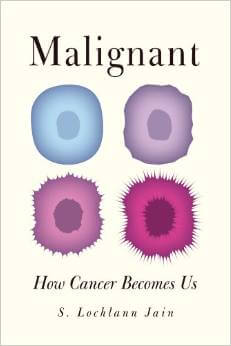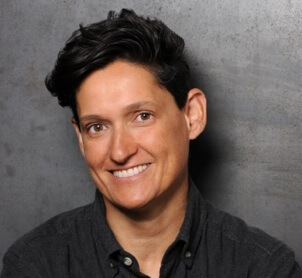
Fleck Prize 2015: Løchlann Jain
The Fleck Prize committee is delighted to offer Løchlann Jain the 2015 Ludwik Fleck Prize for her book Malignant: How Cancer Becomes Us (University of California Press, 2013)! The Fleck Prize recognizes the best book in the area of science and technology studies.
Malignant is simply stunning in its smart bridging of scholarship in STS through a range of methods, from historical to anthropological. The committee was deeply impressed by just how widely Jain cast her net in finding the resources she takes up in this fine work. Some of these include philosopher Maurice Blanchot and Nixon’s ‘war on cancer,’ cancer narratives and historical films about DDT, classic feminist texts on cancer experience, and archival medical and legal sources.
The account also draws upon Jain’s considerable expertise in the interpretive analysis of injury and malpractice law. How she covers cancer science and cancer care without missing either the fine-textured detail or the big picture of policy issues is a marvel to see.
The book is a tour de force in high-level STS scholarship, while also written beautifully and in a socially-responsible manner.
Bio

Acceptance
I am deeply honored to receive the Fleck prize for scholarship in STS. In particular, I have to thank my PhD advisor Donna Haraway, who took the time and energy – sometimes forcibly but always gently – to focus my curiosity and reign in my wildly undisciplined approach to interdisciplinary scholarship. Without her mentorship; her example of courage, creativity, and intellectual generosity; and her commitment to building STS, I could never have been a scholar. Writing this book enabled me to understand, at a deep level, the contribution that STS has to make, and the solace that it has to give, through its commitment to questioning and synthesizing the complex ways that science and technology inhabits everyday lives and deaths, and its ability to accept the resulting paradoxes and contractions, rather than forcing them into a misguided resolution. Scholarship in STS has taught me that our expertise is only as good as our abilities to make it meaningful – both to ourselves, and to those who rely on us. I am so thrilled and fortunate to have so many beautiful souls in my life who have made it possible for me to write this book and live in the frightening and absurd world. I would also to thank the committee for the tremendous amount of time they have devoted to the work of adjudication.
Committee members: Leandro Rodriguez Medina (UDLAP, Mexico; chair), Lisa Cartwright (UC San Diego, USA), Kenji Ito (Graduate U for Advanced Studies, Sokendai, Japan), Kaushik Sunder Rajan (U Chicago, USA).

